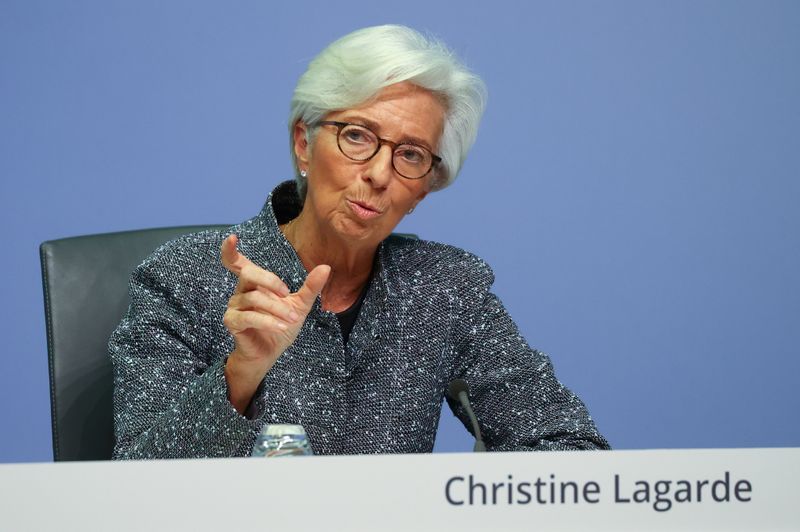(Bloomberg) -- Sign up for the New Economy Daily newsletter, follow us @economics and subscribe to our podcast.
European Central Bank President Christine Lagarde doubled down on her assessment that euro-area inflation will ease as economies rebound, falling back below the 2% target in the medium term.
“As the recovery continues and supply bottlenecks unwind, we can expect the price pressure on goods and services to normalize,” Lagarde told European Parliament lawmakers Monday. “We do see wage growth next year potentially rising somewhat more than this year, but the risk of second-round effects remains limited.”
Inflation in the currency bloc is the fastest since 2008, fueled by higher energy prices, supply-chain disruptions and other pandemic-related effects. Many economists agree with the ECB that it will fall back below target in 2023, but there’s consternation in some corners of the region about surging prices.
The ECB is set to decide on the future of its monetary stimulus at a meeting next month, when it gets new economic projections. Its 1.85 trillion-euro ($2.1 trillion) pandemic bond-buying program is set to end in March, and a boost to regular asset purchases is being debated.
“Even after the expected end of the pandemic emergency, it will still be important that monetary policy -- including the appropriate calibration of asset purchases -- supports the recovery throughout the euro area and the sustainable return of inflation to our target,” Lagarde said.
Complicating the math for central bankers is a fresh spike in Covid-19 infections that may lead to new restrictions on economic activity. Austria has already imposed a lockdown for those who haven’t been vaccinated. German parties that are currently negotiating a coalition agreement are also considering tighter measures.
Read our coronavirus updated here.
These risks, combined with drawn-out supply interruptions, will probably lead the ECB to maintain its loose monetary policy next month, with an interest-rate increase possibly still a long way off, HSBC economist Simon Wells said Monday in a report to clients.
“The challenge is not over yet,” Lagarde said. “Not only the course of the pandemic, but also the decisions taken by policy makers will continue to determine the strength of the recovery.”
©2021 Bloomberg L.P.
